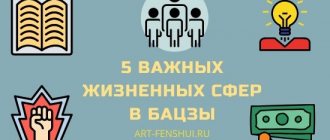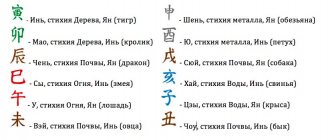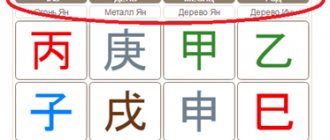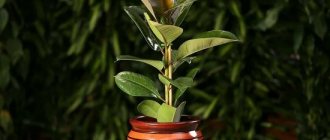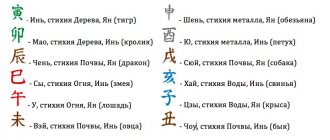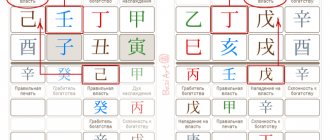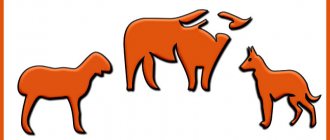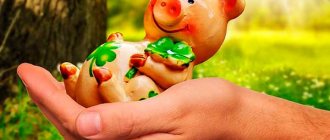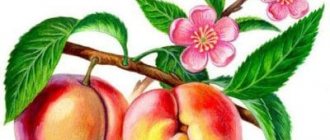Let's talk about self-punishment in Bazi. If your bazi chart contains combinations of signs:
Dragon + Dragon
Horse + Horse
Rooster + Rooster
Pig + Pig
or one sign from this formula is in the map, and the other comes in the period, then you should know what these combinations bring with them.
The paired combination of the above signs is called self-punishment in Bazi. It depends on the behavior of the person himself and is subject to his control.
To ensure that the events of this period do not bring any harm to either the owner of this formula or those around him, you just need to know what to expect from the upcoming period and how to behave.
Self-punishment in Bazi. Not everything is as bad as it seems...
Self-punishment in Bazi sounds like something threatening to the ear. However, this only means that in the Bazi card there may be two identical animals that do not “love” their own kind too much.
Why did animal combinations get the name “Self-punishment”? There are reasons for this...
The fact is that if a person has certain pairs of animals in his Bazi chart, then under their influence the person himself tends to create problems for himself, supposedly out of nowhere. Make annoying mistakes and blunders, which can deteriorate relationships with others and cause other problems.
That is, it turns out that the person, as it were, “punished himself” with his erroneous actions.
Unlike Bazi Encounters, which mean direct confrontation, Self-Punishment is more hidden in nature. They “say” that doubts, complexes, and bad habits can occupy a large place inside a person.
Self-punishment in Bazi varies in strength
- When pairs of animals participating in Self-Punishment are nearby, then it manifests itself more strongly.
- If they are in pillars separated by another animal, then their influence will be much weaker.
- And if in the Bazi card there are not two, but three or four similar animals, then they act more strongly.
But not all pairs of animals in the Bazi card mean Self-punishment. There are only four possible options.
Self-punishment Pig + Pig
Element Water. These animals belong to the Traveling Horse class. They can cause obstacles and problems when traveling. It can also mean bad habits due to excessive mobility.
Self-punishment Dragon + Dragon
Element Earth. Storage animals. They cause depression, sadness, “soul-searching,” and a person drives himself into sad thoughts.
Self-punishment Rooster + Rooster
Element Metal. The rooster is an animal of the “Flower of Romance” class. He admires himself, “shows off”, creates problems due to boasting. The hiergolyph is similar to a bottle, so there may also be a craving for alcohol.
Self-punishment Horse + Horse
Element Fire. The horse is a bright, spectacular animal. Can give explosive emotions, unrestrained behavior, uncontrollable excitement.
But this is only a general superficial view. Of much greater importance is which of the 5 life aspects of Bazi are the animals involved in self-punishment. In addition, they should not be automatically assessed as something 100% unfavorable.
Self-punishment is, first of all, strengthening the qualities of one of the 5 elements.
Therefore, if the element involved in Self-Punishment is beneficial to the personal Bazi chart, then the person can benefit from it. After all, sometimes even bad habits lead to good results. Although, probably, those around you still won’t quite like it.
For example, if Metal in the 5 life spheres of Bazi relates to money, and it is a favorable element, then the self-punishment of “Rooster + Rooster” will give a good ability to “make money”. But only if the Metal is favorable. If it is unfavorable, then on the contrary, there is an increased risk of constantly losing money. For example, making the wrong investments and getting burned.
By the way, in the personal calendar of favorable dates, the days of “Self-punishment”, as well as the hours when it is activated, are already marked. It is enough to look at calendars, see in advance the time when “Self-punishment” comes in the date, and take this into account in the future.
In general, Self-punishment in Bazi is not necessarily a bad thing. Therefore, it is not always worth fearing. But even when it brings failure, there is still an opportunity to improve the situation. If you know about such a flaw in the Bazi chart, then the possible negative effect can always be reduced through conscious actions.
How does self-punishment happen?
Such people “accidentally” get injured, get burned, fall out of the blue, get stuck in destructive relationships, and regularly engage in self-criticism.
Their anamnesis almost always contains diseases that we traditionally classify as psychosomatic: bursting headaches and migraine attacks, irritable bowel syndrome, angina pectoris, hypertension, frequent respiratory ailments.
In addition, they are characterized by real damage to organs and tissues: biting nails, pulling out hair, cuts and burns, broken arms, legs and ribs. These types of self-harm are common in children and adolescents.
Self-harm is characteristic of people prone to self-punishment Photo: Depositphotos
Also typical are marriages with sociopaths, alcoholics and drug addicts, who clearly harm them and threaten their health and even life. Among women regularly exposed to domestic violence, about 40% of those who make acquaintances with marginalized men, repeatedly convicted men, with a difficult family history.
Knowing in advance what such a family life will turn into, women who want to punish themselves persistently seek the consent of relatives to marry, embellishing the image of the chosen one, or, in extreme cases, decide to run away from home. They accept jobs with harsh working conditions, harsh treatment, inability to rest during lunch breaks, low pay and long working hours.
People prone to self-punishment have the following psychological characteristics:
- chronic feelings of guilt (imposed by parents or educators);
- suppressed aggression;
- diffidence;
- the desire to earn the love and recognition of others;
- dependence on the opinions and assessments of other, even insignificant, persons;
- getting stuck on traumatic childhood episodes;
- prohibition on affective reactions;
- sensitivity, vulnerability;
- impulsiveness;
- susceptibility to momentary desires.
A constant feeling of guilt comes from childhood Photo: Depositphotos
Such a unique personality is formed in childhood. In families, as a rule, there is an authoritarian parenting style. Parents do not give their child proper care, warmth and love. Corporal punishment, harsh criticism and prohibition to express one's emotions are common.
Sometimes such chronic psychotraumas give rise to self-loathing in a child: “Why am I such a loser?! Why can't I do anything? If I were clever and skillful, like my older brother/sister/neighbor boy, then I would be loved.” The little person thinks that he does not meet someone's expectations, has not lived up to expectations, or is different from other children. As a result, he cannot accept his own uniqueness.
Psychotherapeutic work begins with studying the life scenario. It is important to get rid of parental prohibitions, stop acting according to their established rules or for reasons of protest. You need to regain your awareness and control over your life.
Photo: Depositphotos
What follows is the awareness of the patient’s direct participation in the injuries received: not “I got a fracture,” but “I broke my arm.” A person who punishes himself must understand that only he controls his victories and failures.
It helps to understand the essence of what is happening together with a psychotherapist by studying the context of the accident, its content, and personal meaning. The patient needs to understand why exactly this happened and exactly now.
When the therapist and the victim find the source of the unconscious deep conflict, the therapy can be considered complete. Next, the patient himself monitors the situations that trigger traumatization and resolves them in a new, constructive way.
You can work on yourself at any age Photo: Depositphotos
Self-punishment can be stopped at any age. However, it makes sense to start working on this problem as early as possible in order to spend the rest of your life in self-improvement, forever freeing yourself from old family programs and the social mask of “always guilty.”
Tags: psychotrauma, self-criticism, life scenario
For the Dragon it is the Monkey
As can be seen from this list, the animal is a medicine of the same polarity as the victim of self-punishment and is the bearer of the element that the victim generates.
Animal medicine seems to drain the power of two animals punishing each other, attracts all their potential to itself and possesses character traits and skills that will remove inflammation in the animal’s psyche and can help it not make mistakes.
The Pig helps the Rooster find a use for himself. With his care and sincere craving for everything bright, beautiful, and unusual, he gives the Rooster goals in life (daily and global), and also sincerely admires the Rooster. This relieves the Rooster of feelings of inferiority. And the tasks that Pig sets to the Rooster simply fill his time and prevent him from being distracted by drinking.
The Dog is a shepherd for the Horse. A dog can reason with a runaway horse, support it, and direct its running in a safe or constructive direction. Sometimes a Dog can simply lead a Horse that has fallen into inadequacy until it comes to its senses and consciousness.
Rabbit , no less inclined to everything beautiful, kind and comfortable than the Pig, is able to always tell the Pig where she is mistaken in her choice of purchases, in relation to people (especially in relation to new people), can load the pig with tasks and chores that she perfectly will decide and cope without mistakes. The Pig wants to take care of someone, and she simply finds an object for care in the Rabbit. And this benefits both of them, since the Rabbit definitely doesn’t like to sit on anyone’s neck and will simply help the Pig set constructive tasks for itself and not make mistakes in choosing their solution.
The Monkey , a social sign and very indifferent to criticism, helps Dragons look at the world more adequately and with humor, albeit black. And the Monkey’s powerful skill of throwing poop at everyone, everyone in general, helps the Dragon both amuse his Ego and look at the situation from the perspective of humor and a desire for intrigue. In addition, the Monkey is accustomed to solving problems very constructively and technically. This sign is capable of replacing the Dragon's brains. Something like this situation could happen between them. The dragon complains that his relatives suddenly began to try to push him around; a colleague suddenly started sticking her nose almost into her underwear and commanding which style of panties to choose; The conductor on the tram dictates which denominations to buy a ticket for, etc. and so on. This is what the average degree of self-punishment looks like for the Dragon. The Monkey, in response to this, will bombard all the people from the Dragon’s story with poop and unflattering comments, and suggest how they can be viciously trolled or dominated in response, so that they are left behind once and for all with their ideas. Just from one such conversation, the Dragon will let off steam and stop building up the evil potential inside.
Advice for everyone who constantly or temporarily suffers from self-punishment.
- If possible, find as your companion a person who carries your animal medicine every year and communicate with him more often when an attack of inadequacy hits.
- Learn to calculate these attacks.
- If such people are not yet surrounded and you can’t find them, then take yourself a toy or a figurine of an animal - medicine, and before making important decisions, meditate on it and you can even mentally talk to this animal, explain to it your internal problems. Pour a charge of self-punishment onto such a figurine.
- Carry with you a keychain or talisman in the shape of an animal - medicine and often hold it in your hands during crisis, difficult situations, in moments of fatigue and stress.
Clarity of mind and clear gaze to everyone))
(c)Tramp Red and Liri Kavvira
